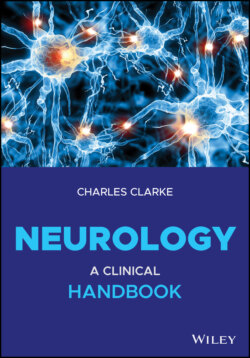Читать книгу Neurology - Charles H. Clarke - Страница 78
Neurological Disease with Systemic Disorders and Autoantibodies
ОглавлениеSeveral diseases have antibodies that may have both systemic effects and effects on the nervous system. In others, antibodies are central to diagnosis but of questionable relevance to pathogenesis.
Anti‐neutrophil cytoplasmic antibodies (ANCA) are associated with some vasculitides. Although antibodies may attack neutrophils, for example in granulomatosis with polyangiitis (GPA), they are not essential to the pathogenesis.
Antibodies to extractable nuclear antigens (ENA) are associated with primary and secondary Sjögren’s syndrome – that causes a sensory neuronopathy.
Antibodies to phospholipid and cardiolipin are associated with the antiphospholipid syndrome – that may cause a disorder of coagulation, or in some cases an MS‐like condition.
In paraneoplastic conditions there is overlap between humoral and T‐cell mediated disease, but the antibody tends to define the syndrome.
Anti‐Hu, anti‐Yo and anti‐Ri, associated with disorders such as sensory ganglionopathies, limbic encephalitis and the opsoclonus‐myoclonus syndrome are also associated with tumour types such as small cell cancers, breast and ovarian tumours.
